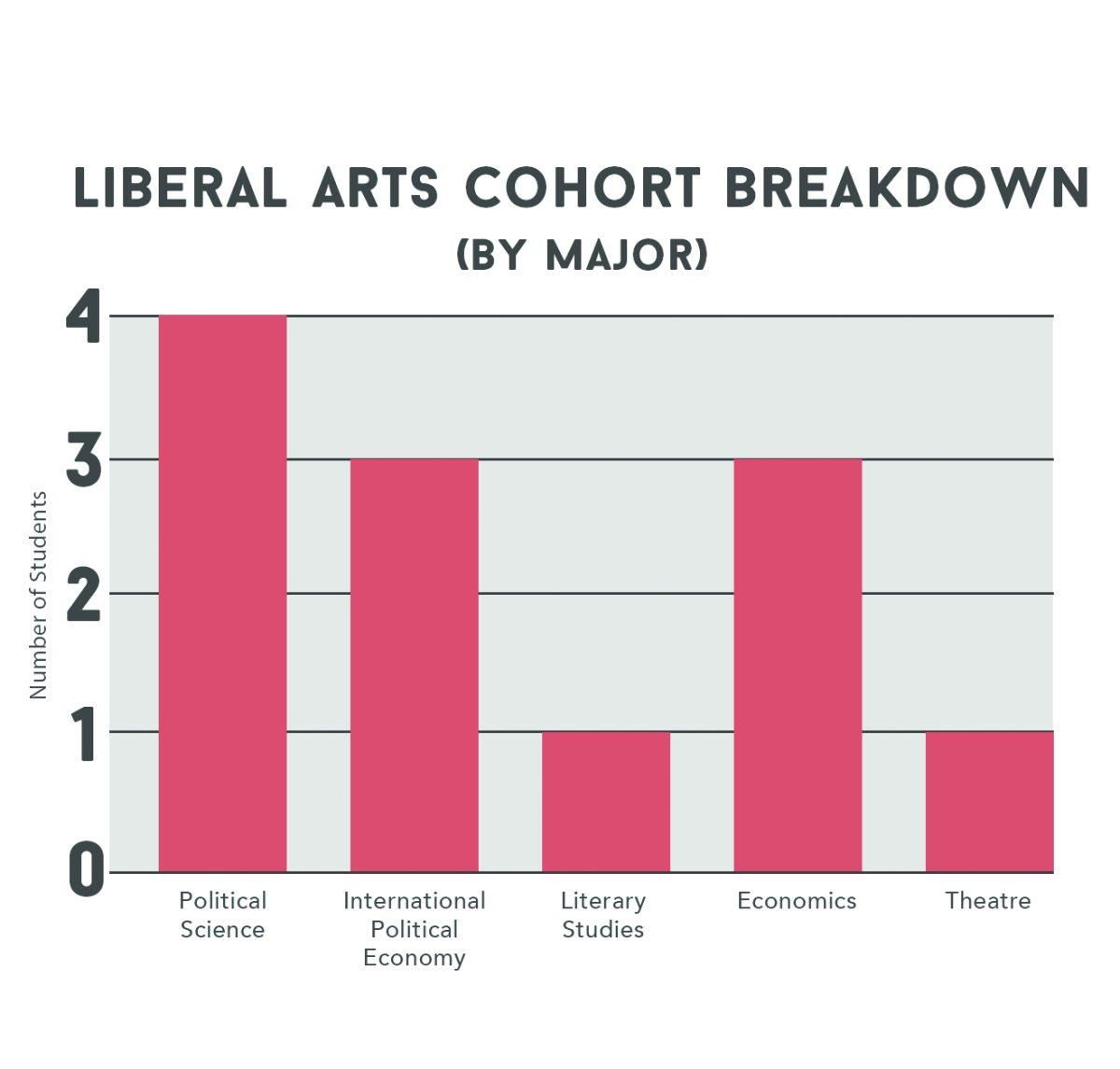A new honors cohort launched this semester for students majoring in the liberal arts.
Edward Harpham, dean of the Hobson Wildenthal Honors College, led the project to form a Liberal Arts Honors cohort at UTD. Students in either the School of Arts and Humanities or the School of Economic, Political and Policy Sciences are eligible to join. The program focuses on creating a group of students with similar passions, while exposing them to a variety of liberal arts-based careers.
“What we’re trying to do — and this is all experimental — is to create a cohort where students can be concentrated together, get to know each other and take a series of classes together,” Harpham said. “How can we stimulate discussion between liberal arts students? My vision is not to end here, but to continue growing the cohort.”
According to the Hobson Wildenthal Honors College website, the program seeks to attract bright students whose focus is in reading, writing and the discussion of ideas.
Eighteen students with a variety of majors compose the inaugural class of the Liberal Arts Honors cohort. Noah Corbitt and Chetan Reddy, both freshman political science majors, are members of the new group.
“I think that part of the reason one studies liberal arts is so that they can, to put it simply, learn to think,” Corbitt said. “To learn to analyze the world deeply as opposed to just accepting it for what it is.”
Corbitt and Reddy said the Honors cohort provides ample opportunity to become immersed in the liberal arts environment on campus.
“Most liberal arts majors wouldn’t get exposure to what a liberal arts education is supposed to be if not enrolled in this readings class,” Reddy said. “It definitely broadens the scope of the education we receive here.”
The Liberal Arts Honors Readings course brings a different professor or academic expert involved in the liberal arts every week to discuss economics, literature, culture or history. Valerie Brunell, assistant dean of the Honors College, facilitates the class.
“The purpose of the course is two-fold,” Brunell said. “I want to expose this cohort to a breadth of ideas, disciplines and faculty, and their discourse on varied topics will allow them all to get to know each other better as students and people.”
Corbitt said he doubted whether the cohort marks a fundamental change in the university’s values, but still considers it a beneficial addition.
“It definitely shows that the organizers are willing to commit certain resources and some level of care,” he said. “It’s not enough to make this a liberal arts university but I don’t think that’s what they’re trying to do. It shows us that there are pockets where our interests are voiced.”
The Honors college website reports that only 5 percent of its students major within the schools of Arts and Humanities or Economic, Political and Policy Sciences. Harpham said an Honors program focused on A&H and EPPS may increase the applicant pool for UTD in the liberal arts fields, expanding the horizons of the university.
Both Corbitt and Reddy said they see the Liberal Arts Honors cohort as a move in the right direction. Reddy said he looks at the cohort as a chance to create a prestigious program at UTD in the long run.
“I’m excited to see what the future holds,” Reddy said. “Right now, it is not at its full potential. Once it has more people, it brings more resources, and more resources brings more attention. This is definitely the step UTD needed to take in order to make sure that, in the future, a liberal arts education is just as important at this university as engineering.”











